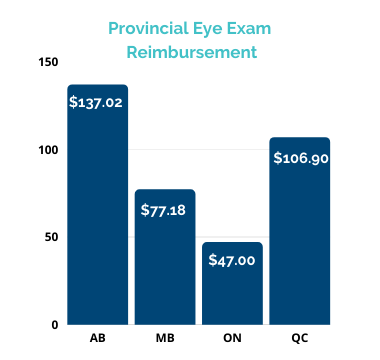Do colour blindness-correcting glasses really work?
New glasses are advertising an improvement in colour vision for people with common forms of red-green colour blindness. You may even have seen emotional, viral videos of people trying these glasses on for the first time. But how well do colour blindness-correcting glasses really work? Inherited colour blindness, also called colour vision deficiency, has no cure today. But for some people with milder forms of red-green colour blindness, specially formulated colour-correcting eyeglasses may improve the contrast between some colours. The results vary depending on the type and extent of a person’s colour vision deficiency. In this blog by Mountain Eye Care, we share some information about if colour blindness-correcting glasses really work.
Click here to schedule your appointment at Mountain Eye Care!
Who can benefit from colour blindness-correcting glasses?
Genetic colour blindness is caused by an absence of, or problem in the function of, one or more of the three types of colour-sensing cone photoreceptors in the retina. People who have difficulty detecting green light (deuteranomaly) or red light (protanomaly) experience overlap between some of the light wavelengths that the brain interprets as red or green colour.
Colour blindness glasses are made with certain minerals to absorb and filter out some of the wavelengths between green and red that could confuse the brain. Colou rblindness-correcting glasses will not change colour perception for people whose deficiency is caused by a complete absence of red or green photoreceptors. And the positive effects of the glasses last only as long as they are being worn. The glasses don’t in any way modify a person’s photoreceptors, optic nerves or visual cortex to fix colour blindness.
What to consider before purchasing colour blindness-correcting glasses?
Because they reduce the amount of light getting to the eye, it might not be a good idea to wear colour blindness-correcting glasses at night. Reducing the amount of light getting into the eye might especially be a problem for people who have other eye conditions such as cataracts or macular degeneration.
Cost is also a concern for the average consumer. These glasses may be a luxury item for many individuals because they can cost several hundred dollars. It’s important for people to have realistic expectations of how much these glasses might or might not help them before they buy. Colour blindness-correcting glasses are generally not covered by insurance because colour blindness doesn’t affect a person’s health, so treatment isn’t medically necessary.
There are other devices designed to enhance the contrast between colours, such as hunting glasses and contrast-increasing filters for photography that may benefit some people. But products other than colour blindness-correcting glasses weren’t developed specifically to address the experience of people with colour blindness.
If you are looking for information about colour blindness-correcting glasses and if they work or not, we encourage you to get in touch with a Mountain Eye Care professional today. Continue browsing through our website to learn about our products and services.
Click here to find our contact information, schedule an appointment, or to speak with a representative.


